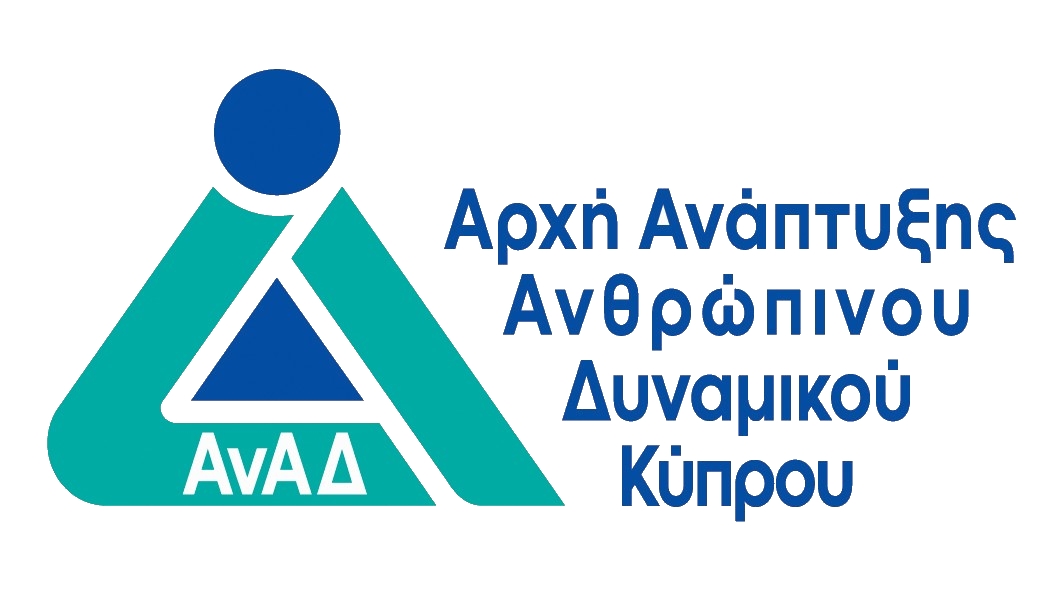
Compliance Officer Certification in AML for ICPAC and CBA Professionals
- Χρηματοοικ. Ασφαλιστικά Τραπεζικά - Νομοθεσία, Νομική & Δικηγόροι

ΠΕΡΙΓΡΑΦΗ
The Compliance Officer Certification in AML for ICPAC and CBA Professionals examination requires very good knowledge of the Prevention and Suppression of Money Laundering and Terrorist Financing Laws of 2007-2022 (“the Law”), ICPAC and the CBA Directive for the Prevention and Suppression of Money Laundering and the Risk Factor Guidelines of the European Supervisory Authorities, among other know-how.
The course will prepare participants for the examination that has been designed by the International Compliance Institute (ICA) and provides an excellent introduction to anti money laundering and is a good basis for further study on the subject. It has a practical focus and is open to any individual who has an interest in anti-money laundering as well to professionals who would like to gain practical knowledge in AML/CFT compliance necessary to perform the functions of a Compliance Officer.
Persons who pass the Compliance Officer Certification in AML for ICPAC and CBA Professionals Examination can be appointed as AML compliance officers in ICPAC and CBA regulated legal entities. Successful candidates will then be registered in the AML Compliance Officers Register of the ICPAC and CBA registry.
ΣΚΟΠΟΣ ΣΕΜΙΝΑΡΙΟΥ
By the end of the programme, participants will be able to:
- Define what Money Laundering, Terrorist Financing is
- Outline the methods used by money launderers
- Describe the specific vulnerabilities of a range of products and services that may be exploited by money launderers
- Explain the risk faced by obliged entities such as accountants and auditors in Cyprus
- Discuss the way in which corporate service providers can be vulnerable to money launderers
- Explain customer due diligence (CDD) and look at measures covered by this term
- Discuss how client activity may be monitored by firms
- Introduce AML/CFT initiatives of the 3 international bodies
- Outline the how legal background to regulation is structured
- Explain the concept of risk-based approach (RBA)
- Describe how policies against ML/TF are formed
- Outline factors that must be covered by AML procedures
ΣΕ ΠΟΙΟΥΣ ΑΠΕΥΘΥΝΕΤΑΙ
- Internal & External Auditors
- Accountants
- Lawyers
- Risk Managers & Compliance Officers
- Chief Operating Officers & Financial Controllers
- Executive Management
ΠΕΡΙΣΣΟΤΕΡΕΣ ΠΛΗΡΟΦΟΡΙΕΣ
Training Outline
Understanding Money Laundering, Terrorist Financing
- Definition of ML
- Outline the methods used by money launderers
- Discuss why it is important for regulated entities to avoid involvement in ML
- Discuss the risks associated with terrorist financing
- Discuss the sanctions regimes in place against entities/individuals who are possibly also involved in ML/TF
Vulnerabilities to Money Laundering and Terrorist Financing
- Describe the specific vulnerabilities of a range of products and services that may be exploited by money launderes
- Explain the risk faced by obliged entities such as accountants and auditors in Cyprus
- Clarify the way in which corporate service providers can be vulnerable to money launderers
- Explain how money launderers can use trusts, insurance and investment services to launder the proceeds of crime
- Discuss how money launderers are moving into new areas , such as gambling, trade-based money laundering, internet, prepaid cards and virtual currencies
Anti Money Laundering and Combating the Financing of Terrorism in Practice
- Consider how to identify ML and TF activities
- Explain customer due diligence (CDD) and look at measures covered by this term
- Discuss how client activity may be monitored by firms
- Discuss how disguised “beneficial ownership” can aid a money launderer and disturb a money trail
- Look at particular risks associated with politically exposed persons (PEPs)
- Explain how to recognise suspicious activity and what to do once suspicions are formed
Anti Money Laundering and Combating the Financing of Terrorism – Legal and Regulatory
- Introduce AML/CFT initiatives of the 3 international bodies
- Outline the how legal background to regulation is structured
- Describe ML offences that may be committed by those working in the industry
- Explain the legal obligation to report suspected money laundering
- Understand the legal and regulatory framework of Cyprus
Management Obligations and the Risk-Based Approach to Money Laundering and Terrorist Financing
- Explain the concept of risk-based approach (RBA)
- Describe how policies against ML/TF are formed
- Outline factors that must be covered by AML procedures
- Discuss how to monitor compliance with internal AML policies
- Consider the resources necessary for effective AML work and consider the importance of a corporate culture
Training Style
The programme is designed to deliver knowledge and enhance participants’ skills via short lectures, case-studies, practical examples, real-life simulations.
Participants will engage in discussions surrounding the topics of the Compliance Officer Certification in AML for ICPAC and CBA Professionals.
They will also benefit from feedback at the end of the programme and take away the knowledge gained to be transferred at their workplace
CPD Recognition
This programme may be approved for up to 15 CPD units in Financial Regulation and AML. Eligibility criteria and CPD Units are verified directly by your association, regulator or other bodies which you hold membership.
EXAMINATION
General Information:
- The examination is addressed to all individuals who are interested in being appointed as AML compliance officers in ICPAC and CBA regulated legal entities
- The examination is available to all Members and to any non-members who wish to obtain the AML/CFT Certification.
- Both the material and the exam are only available in English
- Exam method: The exams are conducted online from your preferred location following instructions that will be forwarded by the International Compliance Association
- Exam Duration: 60 minutes
- Question type: 25 Multiple choice
- The pass mark of the examination is set at 70%. Exam pass mark: 70% (18/25)
Fees: The examination fee is €300.00 and is payable directly to CBA or ICPAC upon registration to the exam.
Registration and Re-registration Procedure for Examinations and Registry
To register for the Compliance Officer Certification in AML for ICPAC and CBA professionals’ examination, prospective candidates are required to complete the online exam application. If a candidate wishes to make any changes to their exam application or cancel their participation in the exam, they may do so only 24 hours (for CBA candidates) prior to the exam date and schedule a new examination date at no cost.
Registrations for the examination must be made at least one month prior to the exam via the CBA registration portal link or ICPAC Registration portal link.
Exam results will be immediately available upon completion of the examination.
CBA and ICPAC will maintain a separate register of compliance officers who are appointed to firms licensed by the Institute.
In case you have any queries regarding the examinations, you are kindly requested to forward them to aml@cba.org.cy or mlco.exams@icpac.org.cy
Πληροφορίες Εκπαιδευτή
Αναλυτικό Κόστος Σεμιναρίου
Για Δικαιούχους ΑνΑΔ
- € 565.00
- € 255.00
- € 0.00
- € 310.00
- € 310.00
Για μη-Δικαιούχους ΑνΑΔ
- € 420.00
- € 0.00
- € 79.80
- € 420.00
- € 499.80
Κοστολογικές Πληροφορίες
HRDA-approved seminars are exempted from VAT for eligible organisations applying for the HRDA subsidy. A 19% VAT will apply to seminars and participants who do not qualify for the HRDA subsidy
 Ελληνικά
Ελληνικά  English
English



 Αγγλικά
Αγγλικά
 15 ώρες
(
4 μέρες
)
15 ώρες
(
4 μέρες
)

































































